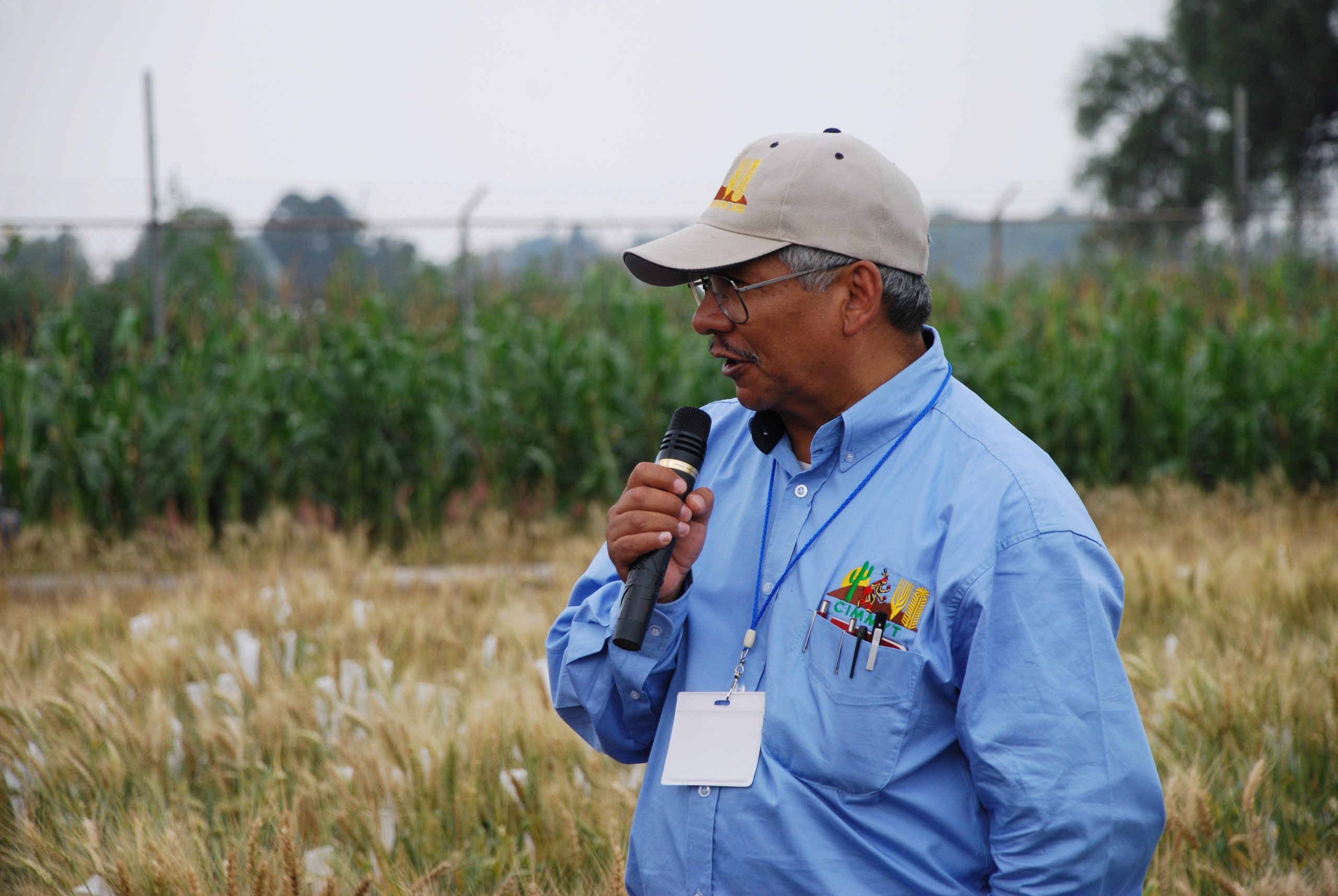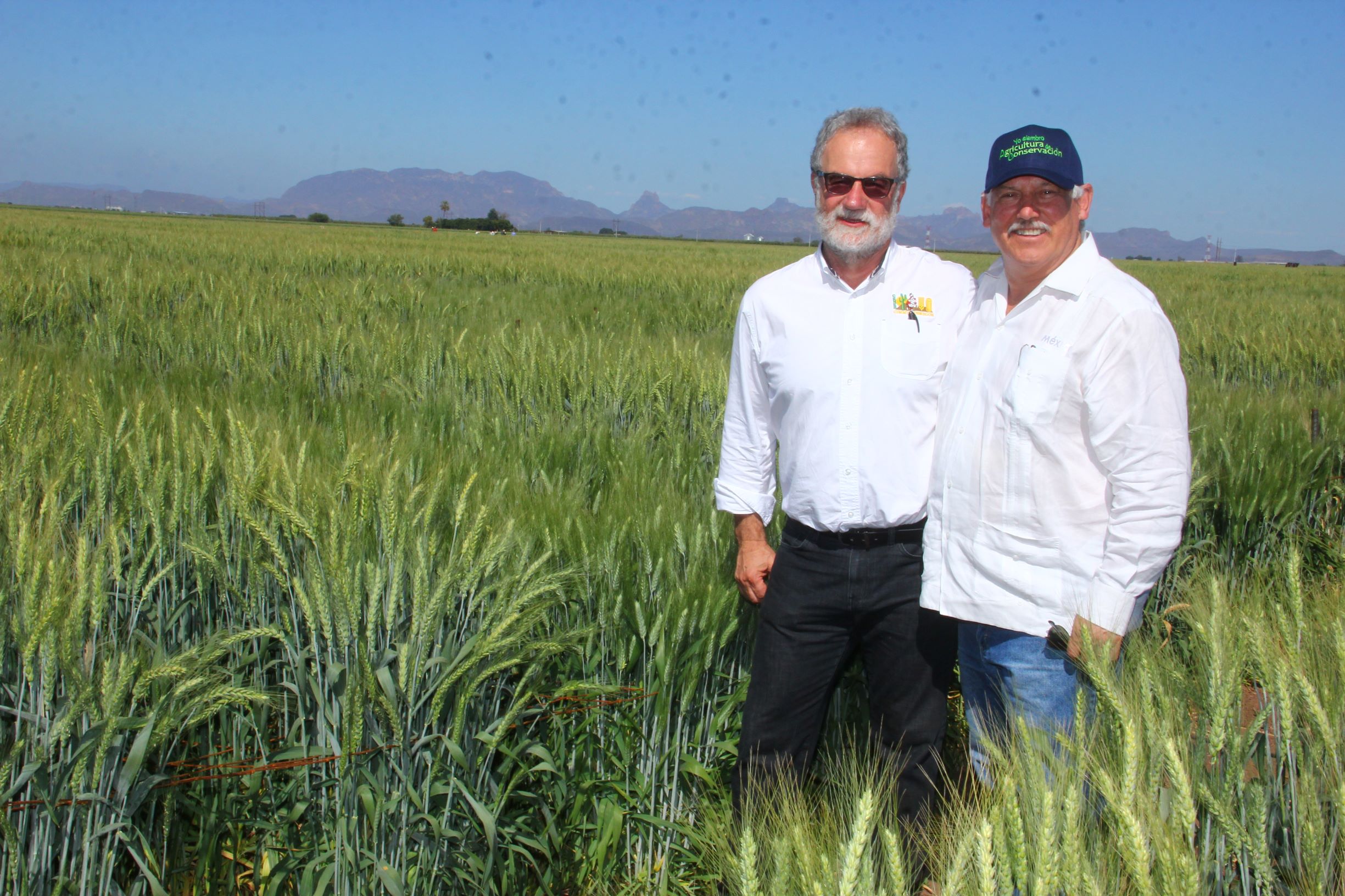Toluca, State of Mexico, August 14, 2025. — The CIMMYT Sanjaya Rajaram Experimental Station became the epicenter of agricultural innovation during the celebration of its field day, an event that made it clear that cutting-edge science, combined with farmers’ knowledge, strong partnerships, and an active innovation network, can deliver real and scalable solutions for the Mexican Highlands and for producers worldwide.
In the words of Flavio Breseghello, Director of CIMMYT’s Global Wheat Program:
“Today you are going to see something incredible: how a small farm in central Mexico can influence the entire global wheat supply chain. Toluca has served the world since the days of Dr. Norman Borlaug and Dr. Sanjaya Rajaram, accelerating genetic improvement and the selection of materials resistant to diseases that threaten wheat worldwide. Thanks to the alternation between Obregón and Toluca, Mexico delivers wheat that helps feed billions of people. This small farm has an absolutely disproportionate effect compared to its size.”
Under the theme “From Gene to Impact: Accelerating Wheat Disease Resistance and Climate Resilience”, researchers, farmers, students, authorities, agribusiness representatives, and leaders of the agri-food chain witnessed firsthand how, from Toluca, more productive wheat varieties are developed that are resistant to diseases and adapted to heat and drought conditions. These innovations not only respond to the challenges of climate change and trade uncertainty but are already transforming agriculture across more than 30 million hectares in Asia, Africa, and Latin America.
The tour included demonstration plots and technical stations that showcased advances in genetic improvement, integration of phytopathology, use of speed-breeding greenhouses, shade mesh, and regenerative agriculture practices to improve soil health and production efficiency. All of this reflects the essence of CIMMYT’s work: integrating science with farmers’ knowledge to sustainably transform agri-food systems, developing solutions that address today the problems the sector will face tomorrow.
In Mexico, CIMMYT has consolidated an innovation network that connects farmers, public and private institutions, and research centers. Agribusiness plays a fundamental role in this network, as CIMMYT has established strategic alliances with the sector to develop demand-driven research, generate higher-quality ingredients for consumers, promote sustainable production, and design models that integrate farmers into more competitive value chains and markets. These collaborations strengthen the link between science, market, and farmer, ensuring that innovation meets demand and improves the competitiveness of the agri-food sector as a whole.
The event was attended by authorities and key allies such as Jorge Omar Velázquez, General Director for Adaptive Agricultural Development and Food Self-Sufficiency of the State of Mexico Secretariat of Agriculture (SECAMPO); Engineer Everardo Lovera Gómez, General Director of ICAMEX; Master Felipe de Javier Peña Dueñas, Executive President of the National Chamber of the Wheat Milling Industry; and Engineer Mario Puente Raya, Executive Director of the Mexican Seed Association. Also present were representatives of universities and agricultural research institutes, leaders of the agri-food industry, and 26 students from 14 countries participating in CIMMYT’s International Wheat Diseases Course.
In his remarks, Jorge Omar Velázquez stated: “It is an honor to warmly welcome you to this field day, in a space that goes beyond its technical nature to become a meeting point where will, knowledge, and experiences converge. Here, we will strengthen the productive heart of the State of Mexico with a common vision: to make the countryside a driver of development, well-being, and food sovereignty. In this endeavor, collaboration with CIMMYT strengthens sustainable production, drives technology transfer, and expands training opportunities. Innovation must reach every region, every ejido, and every plot.”
For his part, CIMMYT Director General Bram Govaerts emphasized: “I invite you to confront, with determination and with a renewed, but above all solid, framework of collaboration, the challenges of wheat and staple grain production in the 21st century. At CIMMYT we are prepared to maintain and achieve the gradual increases in wheat productivity at the speed required, but we cannot do it alone; we urgently need the financial support and medium- to long-term commitment of our investors and partners.”
He also made a direct call to the private sector: “If no action is taken and no investment is made in science, we cannot guarantee the capacity to respond to new threats such as emerging diseases or severe droughts, and this could compromise the supply of wheat, maize, and other cereals that feed millions of people and sustain agribusiness value chains.” He stressed that spaces such as this field day are key to bringing together agribusiness, public and private sector actors, producers, and the scientific community, since the innovations and technologies presented are those that will make it possible to continue supplying the industry, maintaining productivity and profitability, and doing so within a framework of sustainable practices.
CIMMYT’s vision, aligned with its 2030 Strategy, is clear: to adopt a systems approach to address the agri-food challenges of each region, driving collective action through scientific and development partnerships. In the State of Mexico, this translates into joint work with the Secretariat of Agriculture to materialize its vision and generate innovations that strengthen the productivity and sustainability of producers in the state.
The field day closed with a message that captures its spirit: what begins as a gene in the Toluca laboratory becomes tangible impact in the fields of farmers worldwide. From Mexico, CIMMYT will continue to export science, technology, and innovation models that ensure food security and nutrition, building more sustainable, inclusive, and resilient agri-food systems to face the challenges of the 21st century.
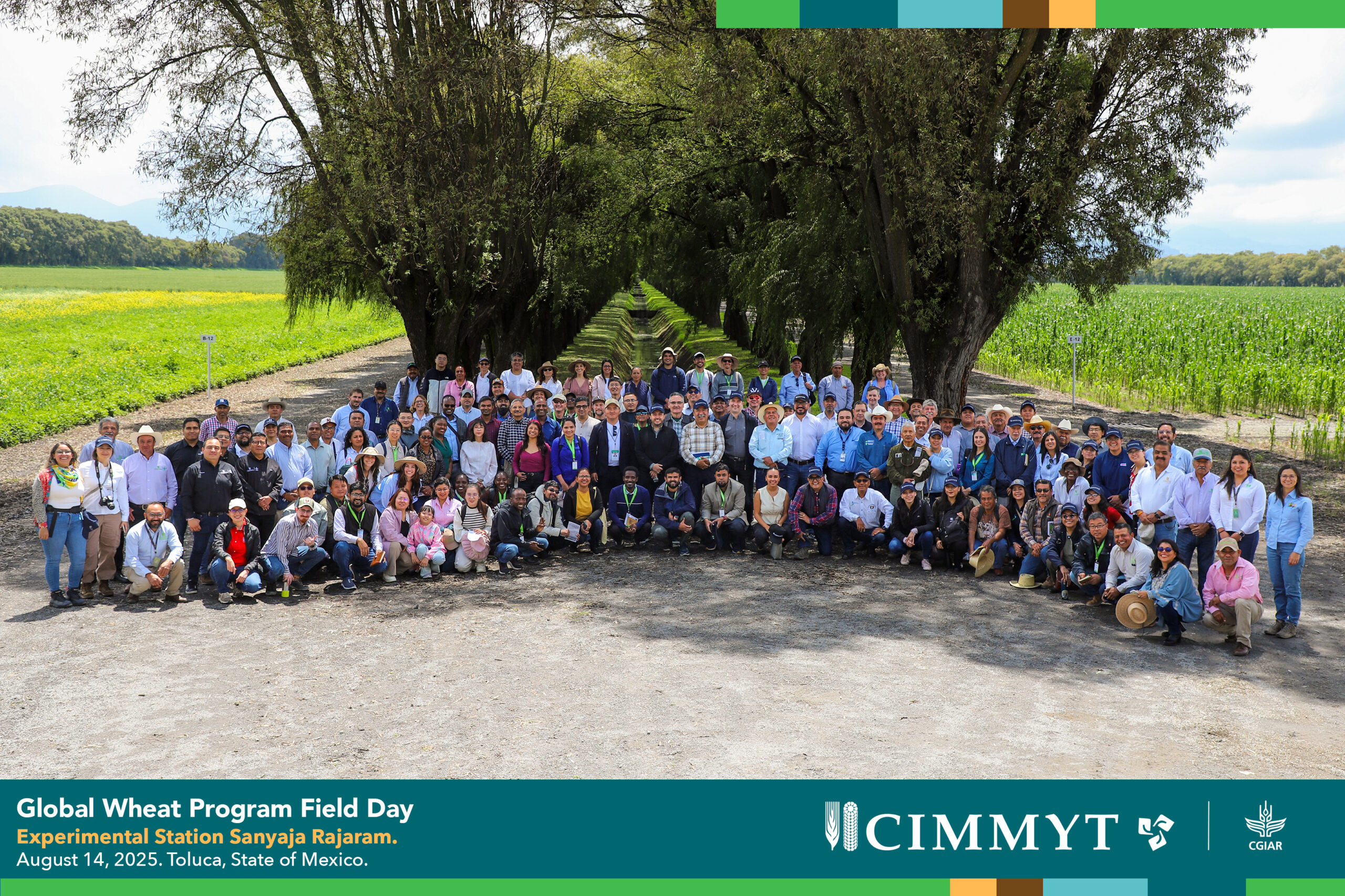
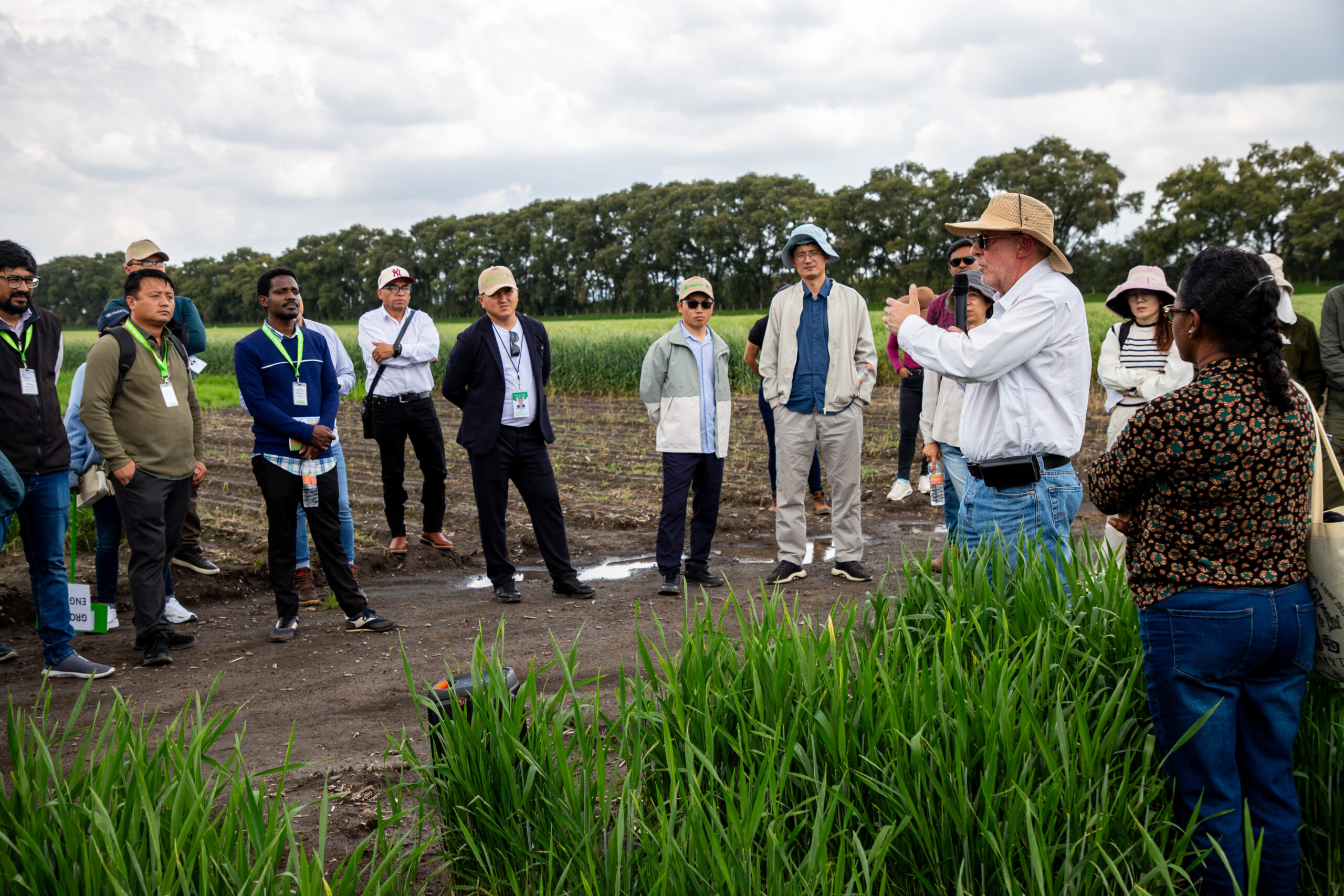
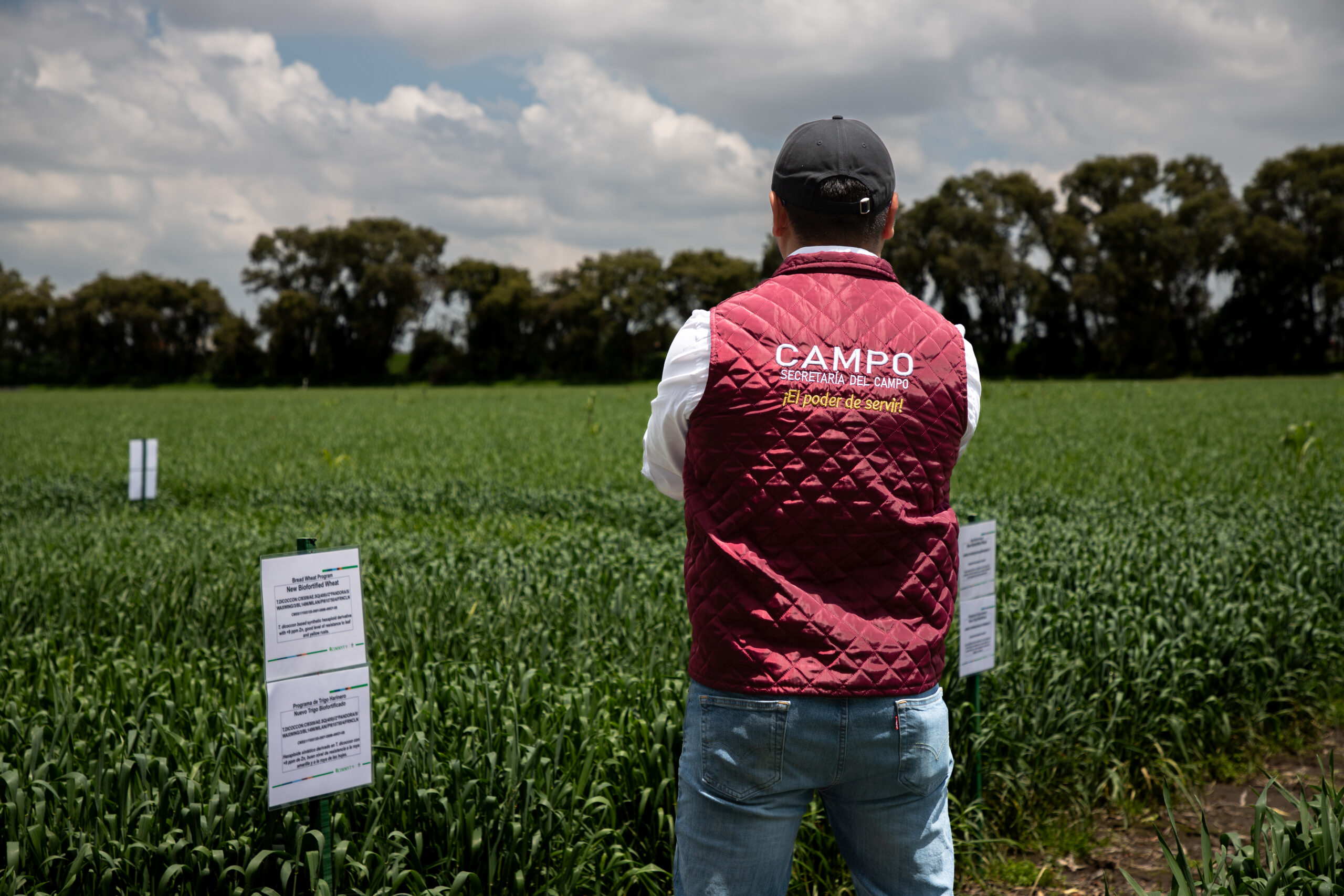
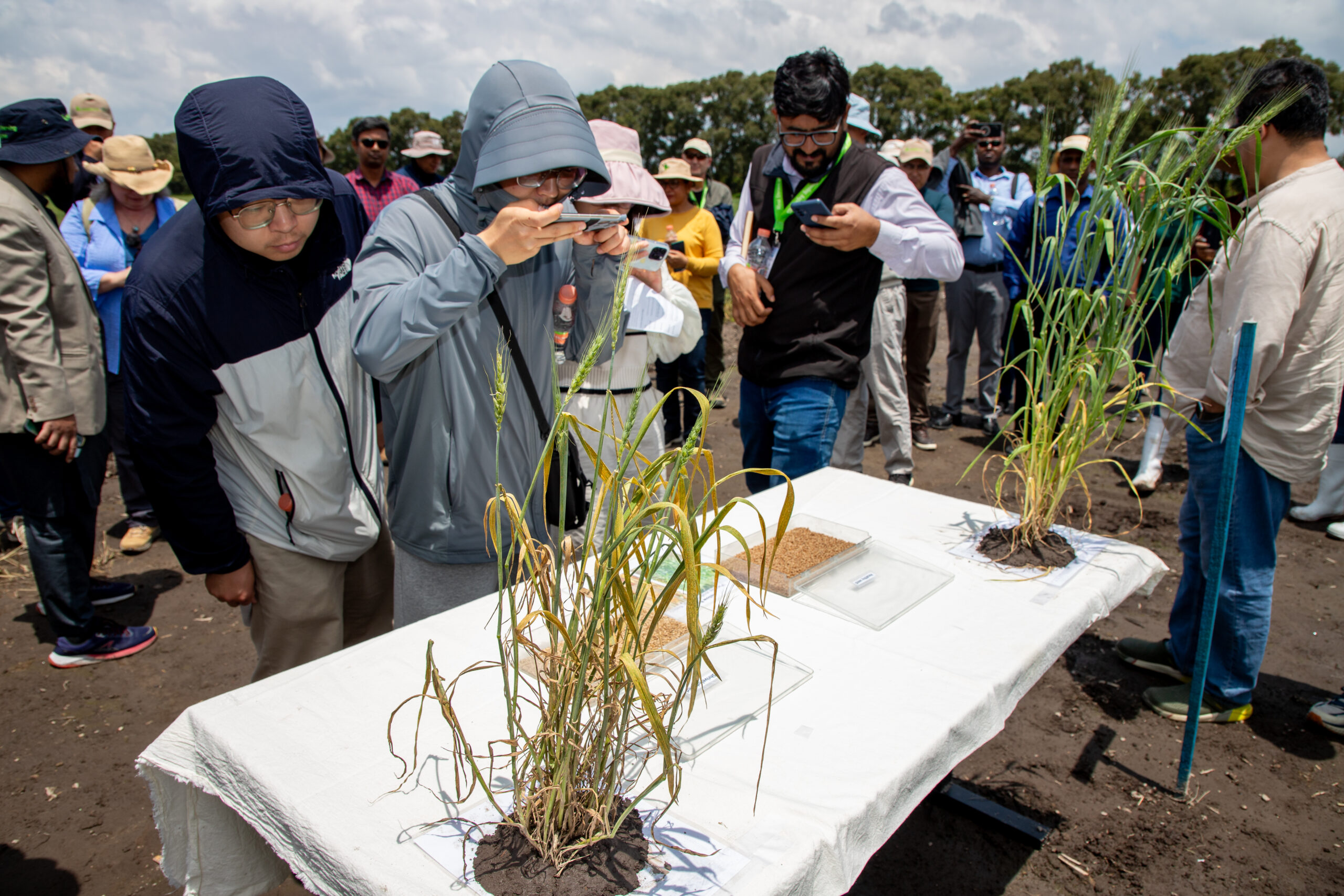
 Nutrition, health and food security
Nutrition, health and food security 